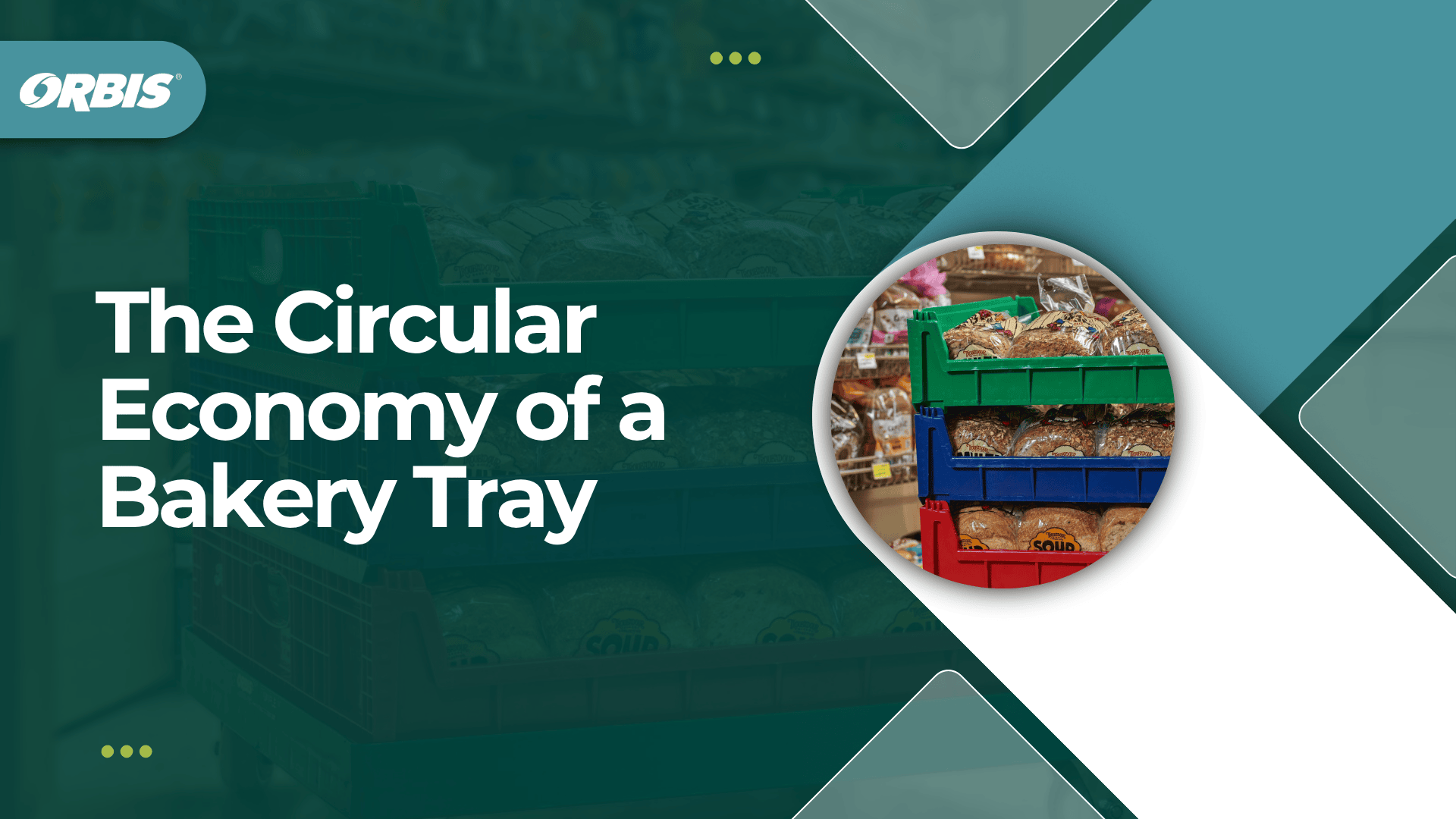The circular economy concept — which is based on a continuous flow of product— is the future of a successful, sustainable supply chain. Food manufacturing and distribution companies are becoming increasingly focused on ensuring that their supply chain activities align with their circular economy goals. At ORBIS Corporation, our focus is on taking reusable packaging and keeping it circular – moving and reusing products as much as possible.
We also recognize that consumers want to work with businesses that have a good sustainability story to tell. Consumers are 27% more likely to purchase brands that care about their impact on people and the planet. And, when consumers rate a brand highly on humanity, they are 15% more likely to spend more money with the brand and choose it over its competitors.
To replace single-use packaging in the supply chain, 100% of ORBIS’ packaging solutions are designed, developed and engineered with sustainability in mind. ORBIS helps customers reduce their overall environmental footprint and uses post-consumer recycled (PCR) content in its packaging solutions so they in turn can tell their own sustainability story.
And this is apparent in the baking industry, where our bakery trays play a key role in the circular economy, providing a cross-stack storage solution so our customers can safely ship and deliver products in bulk. Let’s take a look.
Injection of recycled plastic into the bakery trays
The process starts when we inject plastic into the bakery tray basket, which is accomplished in one of two ways.
The first incorporates our virgin HDPE, which is one of our more standard offerings.
For the other option, we recycle our customers’ baskets at the end of their life, grinding them down, as long as they are in a clean state, and putting them back into the bakery trays, upon request, when we manufacture them, which helps enable a true circular economy. We also have investigated putting other materials that are used in the bakeries – bread bags or other plastics, such as BoPP, for example, back into our bakery tray products.
Trays are sent to customers
Once the trays are manufactured, they are distributed to our food manufacturing customers, where they are loaded up with bread, buns, rolls – anything baked good related. From there, the trays travel to distribution centers, before being transported via semi-truck to bakeries, grocery stores or convenience stores. The empty trays then get returned to either the distributor or the bakery itself.
Long tray life expectancy and customer credits
These recycled bakery trays have a long-life expectancy – many last well over five (5) years. End-of-life typically occurs when a tray is broken after being dropped or incorrectly interacting with a forklift or some form of automation that breaks it.
To continue the circular economy, we work with the customer to get broken trays returned to us, where they are used for regrinding. To encourage a more sustainable supply chain, our customers can receive a per-pound credit for recycled material, depending on where the market is at any given time.
Incorporating colors to meet customer preferences
Bakery trays comprised of recycled materials typically are black. Some customers, however, want a brighter colored basket to differentiate them from competitors, which we will work through with the customer.
A full range of plastic bakery tray options
At ORBIS, we offer plastic bakery trays and systems in a full range of footprints that are required by our bakery and grocery store customers to help them efficiently store, move and merchandise product in their supply chain. These include:
- NPL630B – Double-layer buns like hot dog buns or bratwurst buns will fit nicely in the NPL630B tray. This, along with the NPL640B tray, is typically used by independent and smaller bakeries.
- NPL640B – This tray can be used for bread, freezing applications or smaller-sized products.
- NPL660B – A larger sized tray that is used by grocery stores, primarily for bread.
When full, the NPL630B, NPL640B and NPL660B trays stack securely for easy transport and merchandising. When empty, they cross-stack and nest for backroom and truck space savings. They can be integrated with automated systems and offer smooth surfaces and contoured corners to prevent product damage. And all three trays are fully recyclable at the end of service life.
We find customers may need help moving these trays, but they don’t always have the necessary equipment. Our dollies, such as the NPL700 and NPL705, for bakery tray systems speed shipments and merchandising at retail. They feature non-scuff casters that won’t damage plant or retail floors while a contoured profile ensures easy handling from the truck to the bakery aisle.
